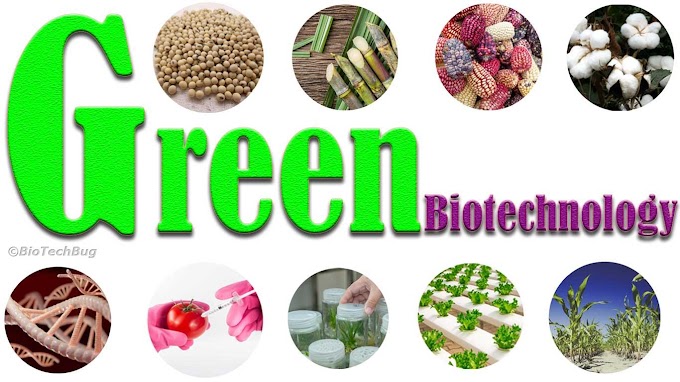Biotechnology is the term used to
describe one section of applied biology which deals with the use of
bioprocesses and living organisms in the field of technology, engineering, and
medicine. The processes of Biotechnology are essentially used in medicine, food
science, and agriculture around the world.
For instance, Biotechnology
allows a person to make use of living organisms to manufacture stuff like milk
products and beer. Again, it is the scientific methods of Biotechnology that
come into play when a city has to get rid of its industrial waste or recycle
the waste to set up a clean site.
Biotechnology is not only a
phenomenon; it is one of the most preferred professional courses chosen by
students in India after completion of school.
Types of Biotechnology Courses
in India
Here we listed the complete list
of various types of Biotechnology courses offered in India at various levels of
students such as for high school (10th) students to the Ph.D. level scholars.
The availability of various types
of Biotechnology courses in India makes it easy for a student to choose the best suitable course as per their requirement and the money that can they invest in
the study.
In India Biotechnology is well
established in the education sector and for the students, every type of
Biotechnology course is now available.
- Certificates Courses
- Diploma Courses
- Bachelor Degree Courses
- Post Graduate Diploma Courses
- Post-Graduate Degree Courses
- Doctor of Philosophy (Ph.D.)
Courses
- Postdoctoral fellowships (PDF)
Courses
Eligibility Criteria for
Studying Biotechnology Courses
Qualifications for different level
courses of Biotechnology is different. The minimum qualification is high
school with a minimum of 50% marks in science subjects.
Students who have studied the
science stream in the 10+2 level of school with a minimum of 50% marks can opt
for undergraduate various types of courses in Biotechnology.
1. Diploma Courses in
Biotechnology
Diploma in Biotechnology is an entry-level course where students know about the various aspects of the
Biotechnology field.
For the Diploma in Biotechnology,
the required eligibility is a minimum of 50% marks in 10th or equivalent with
Science subjects.
- Diploma in Biotechnology (3 Years
Course)
2. Undergraduate Courses in
Biotechnology
A. Normal and Honors Degree
Courses of Biotechnology
For general and honors degree
courses of Biotechnology, students have studied the science stream in the 10+2
level of school with a minimum of 50% marks.
The Bachelor of Science course is
available in maximum Universities and focused mainly on research aspects of
Biotechnology.
- B.Sc. Biotechnology (3 Years
Course)
- B.Sc. (Hons.) Biotechnology (3 Years Course)
- B.Sc. (Hons.) Medical Biotechnology (3 Years Course)
B. Engineering Courses Of Biotechnology
Bachelor of Technology (B.Tech.)
and Bachelor of Engineering (B.E.) is the engineering courses of Biotechnology, that mainly focused on the industrial applications of Biotechnology.
- B.Tech. Biotechnology (4 Years
Course)
- B.Tech. Industrial Biotechnology (4
Years Course)
- B.E. Biotechnology (4 Years
Course)
For the engineering courses of Biotechnology, students should have Physics, Chemistry, and Maths in their 12th class with a minimum of 50% marks. Some Engineering colleges require Maths as a compulsory subject in the 12th whereas others can provide you admission without Maths in the intermediate class.
3. Post Graduate Diploma Courses
in Biotechnology
After completing the
undergraduate course, there are various postgraduate diploma courses available
for Biotechnology students in a specialized branch of Biotechnology.
In these diploma courses,
Biotechnology students will learn about real-industrial biological practices
and problems and learn the skills and expertise in Biotechnology.
Both B.Sc. and B.Tech. students
that have a degree in Biotechnology can get admission to these courses easily.
- Post Graduate Diploma in
Biotechnology (1 Year Course)
- Post Graduate Diploma in Pharma
Biotechnology (1 Year Course)
- Industrial Fermentation &
Alcohol Technology (1-1.5 Years Course)
4. Postgraduate Courses in
Biotechnology
A. Master in Science (M.Sc.)
Master in Science (M.Sc.) is a
post-graduation course that can be done after Bachelor's degree courses in
Biotechnology or a normal degree course in Biology subjects such as in Zoology,
Botany, Chemistry, etc.
- M.Sc. Biotechnology (2 Years Course)
- M.Sc. Industrial Biotechnology (2
Years Course)
- M.Sc. Medical Biotechnology (2
Years Course)
- M.Sc. Nanobiotechnology (2 Years
Course)
- M.Sc. Agriculture Biotechnology (2
Years Course)
- M.Sc. Marine Biotechnology (2
Years Course)
- M.Sc. Medical Biotechnology (2
Years Course)
- M.V.Sc. (Animal) Biotechnology (2
Years Course)
- M.Sc. /M.V.Sc. Veterinary
Biotechnology (2 Years Course)
- M.Sc. Biotechnology and
Bioinformatics (2 Years Course)
- M.Sc. Coastal Aquaculture and
Marine Biotechnology (2 Years Course)
B. Master of Science (M.S.)
MS is a more professional degree
course that is more emphasis on research. It is not just a coursed-based
degree it is a purely research-based course and mainly offered by the
institutes such as IITs.
The eligibility criteria for the
M.S. in Biotechnology is a Bachelor's degree course in Biotechnology or in
relevant subjects.
- M.S. (Research) Biochemical
Engineering & Biotechnology (2 Years Course)
- M.S. Applied Biotechnology (2
Years Course)
C. Master of Philosophy (M. Phil)
M.Phil. in Biotechnology is a postgraduate course of 1 year and less offered by the Universities of India.
Eligibility for entering this course is a Bachelor's degree course in Biotechnology or a relevant course.
- M.Phil. Biotechnology (1 Year Course)
D. Post Graduate Engineering
Courses
Postgraduate engineering courses
are M. Tech. and M.E. in Biotechnology that is more industrial-oriented
courses. Biotechnology companies more prefer these students than a normal degree course.
Eligibility is for these courses
is either B.Tech/B.E in Biotechnology or M.Sc. in Biotechnology.
- M.E. Biotechnology (2 Years
Course)
- M.Tech. Biotechnology (2 Years
Course)
- M.Tech. (Research) Biotechnology (2
Years Course)
- M.Tech. Industrial Biotechnology (2
Years Course)
- M.Tech. Biochemical and
Biotechnology (2 Years Course)
- M.Tech. Biomedical
Engineering/Biotechnology (2 Years Course)
- M.Tech. Marine Biotechnology (2
Years Course)
5. Integrate Dual Degree Courses
in Biotechnology
Integrated dual degree courses in
Biotechnology is a more time-saving course for the students. The eligibility
for entering this course is 12th with science subjects with 50% marks.
- B.Sc. + M.Sc. Biotechnology (Dual
Degree) (5 years course)
- B.Tech. + M.Tech. Biotechnology
(Dual Degree) (5 years course)
6. Integrate Post Graduate Degree
and Research Courses in Biotechnology
After completing a graduate degree in Biotechnology students can take admission in the integrated postgraduate and research courses in Biotechnology that would save their time and money.
- M.Sc. + Ph.D. Biotechnology
- M.Tech. + Ph.D. Biotechnology
7. Management courses in
Biotechnology
Biotechnology management courses are also available in various colleges and universities the qualification for
these courses are the Bachelor's degree course in Biotechnology or a relevant
field.
- MBA Biotechnology Management (2
Years Course)
8. Post Graduate Diploma
Management in Biotechnology
Post Graduate Diploma in
Management for the Biotechnology specialization course is also available in various
institutes. The eligibility for this course is a Bachelor's degree in
Biotechnology or related fields.
- PGDM in Biotechnology (2 Years
Course)
9. More Advanced Courses in
Biotechnology
- Ph.D. in Biotechnology (Science)
- Ph.D. in Biotechnology (Engineering)
- Post-Doctoral Research (PDF) in
Biotechnology
10. Certificate Courses in
Biotechnology
Various research institutes
provide various Biotechnology techniques certificates such as in Clinical Data
Management Certificate, Molecular Biology Techniques, sequencing certification,
Artificial intelligence in Biology, Industrial Biotechnology Online Certificate
Course, etc.
These techniques are job-oriented and required in a specific field
of Biotechnology. Courses are for a very short duration and can any do that
have a Biotechnology degree.
Specialization Courses in Biotechnology
Being an interdisciplinary
subject with diverse areas of study, biotechnological procedures apply themselves
to a wide range of fields allowing students from different backgrounds and
interests to specialize in fields of their choice. Some of the fields of
specialization are listed below.
- Animal Tissue Culture
- Agricultural Engineering
- Biochemistry
- Biochemical engineering
- Bioinformatics
- Biomedical Engineering
- Bioprocess Engineering
- Biophysics
- Dairy Technology
- Enzyme Engineering
- Environmental Biotechnology
- Fermentation Technology
- Fisheries
- Food Technology
- Genetics
- Genetic Engineering
- Horticulture
- Immunology
- Medical Biotechnology
- Microbiology
- Molecular Biology
- Pharmacology
- Plant Tissue Culture
- Pharmaceutical Biotechnology
- Physiology
- Nanobiotechnology
Among the various types of courses, which course is best in Biotechnology for securing a career in the biotechnology sector? Read our post "
Best Course in Biotechnology" for knowing the exact reasons.





